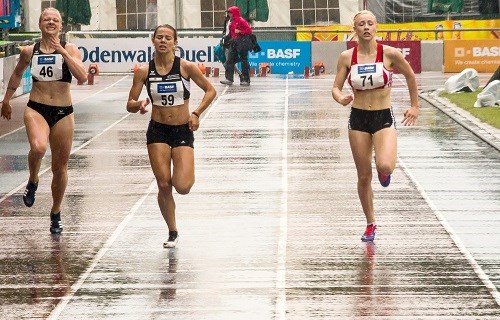Researchers request greater awareness of gender-based violence in sport
Gender-based violence against women within the sports environment needs urgent attention, global research on gender equality in sport finds.
According to results presented in the ‘International Working Group (IWG) on Women and Sport Progress Report 2013-2018’. The areas where fewest actions have been taken are: improving the media coverage of women in sports (51%), child-care provision (36%) and protecting female athletes from developing eating disorders (34%).
Gender-based violence is not included among those areas because the figures indicate an improvement from the previous report; shifting from 51% in 2014 to 63% now. Anyway, this means that there are still 37% of organisations who have not taken action since 2013 to protect women from gender-based violence in sport.
Furthermore, a large number of organisations (28%) has not even considered this issue and 24% of them believe the protection of gender-based violence is not relevant for them.
Women in leadership positions
A similar context is presented for the number of women occupying leadership positions. In fact, if more organizations (77%) have taken action to increase the number of female coaches in respect to 2014 (41%), notwithstanding 53% organisations still believe that the lack of women in decision-making positions is the most important inequality that women ecounter.
According to 46% of the organisations this is due to ‘gendered social norms’, considered by them as the greatest global barrier to equality between women and men in sport today.
“This indicates a lack of respect which girls and women often experience either directly or indirectly as a consequence of the gender stereotypes and gender roles that exist in most societies,” the report says.
An example of this way of thinking is the answer given in the report by the International Paralympic Committee (IPC): “Society gender stereotypes are the most important barrier; sport continues to be a field for men in the heads of many. This makes it harder for women to form part of it.”
A lack of an effective action plan
Another striking finding regards both the lack of gender mainstream strategies, only 49% organisations have actuated it, and the absence of a proper development of a gender equality action plan, advanced only by 58% organisations.
The results demonstrate that women in sports have to keep fighting for gender equality in the field, as Dr Jordan Matthews, a member of the research team, says.
“The results of our study indicate that there is much to be done to truly address the issue of gender-based violence against girls and women in sport,” he says in a press release from Chichester University.
“A better understanding of the issues involved has the potential to create a greater consistency in how gender-based violence is addressed, which can lead to codes of conduct and solutions for adoption top to bottom, and worldwide.”
The findings in the IWG report are in accordance with results of a 2016 study on the topic issued by the European Commission, where the underestimation of gender-based violence in sport and the lack of long-term initiatives by sports organisations are pointed out as relevant problems.
The need of a better addressing of the issue is also underlined by Dr Melanie Lang, who researched gender-based violence as part of a European Commission report.
"There is a need for people higher up in sporting hierarchies to get on board with this issue and take it seriously. Safeguarding is often assumed to be the responsibility of the club welfare officer, and beyond that, people higher up in the chain, or coaches don't see it as their issue. They see their core role as performance,” she said in a recent interview with BBC.
Even though the IWG report finds that “significant actions among the signatory organisations have taken place” and that progress in the area of gender equality in sports is found, other meaningful areas still need work.
“What is needed,” the report concludes, “is much more monitoring and evaluating research, in order to measure the impact of these actions.”






